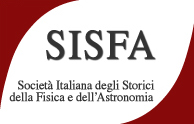Speaker
Description
In 1933, the physicist Bruno Benedetto Rossi (1905–1993) undertook an expedition to Eritrea, which allowed him to prove that primary cosmic rays are composed mainly of positively charged particles. A few months earlier, Arthur H. Compton (1892–1962) had asked Rossi to bring to Africa also one of the ionization chambers involved in a worldwide series of experiments aimed at detecting a latitude effect for cosmic rays. A newly discovered archive about Rossi’s life has recently become available, containing letters, documents, notes, photographs, and personal items found in the house in Venice where Rossi lived until 1938, when he and his wife left Italy due to the racial laws. Thanks to this, we have been able to reconstruct how the expedition was carried out, both historically and scientifically, as well as the contacts with scientific and political institutions, and the fruitful collaboration with Compton. The present talk will thus provide an overview of the new information obtained concerning the Eritrean expedition, with a focus on the scientific practices and the chronicle of the experiments. Particular attention will also be paid to the prominent role Rossi played in transforming cosmic-ray physics from a semi-quantitative survey into a proper research field.

